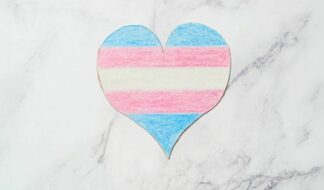DETROIT –
Mandy Carter has been on the front lines, fighting for LBGT and racial equality since the 60s. She lead the battle to unseat anti-gay U.S. Senator Jesse Helms (R-N.C.) in the 90s. In short, as Sue Hyde said in her introduction to Carter, as the winner of the Susan J. Hyde Activism Award from the National Gay and Lesbian Task Force, Carter represents "Forty years of political trouble making."
Carter was honored at the 20th anniversary Creating Change conference sponsored by the National Gay and Lesbian Task Force for her work with SONG– Southerns On New Ground. SONG was created 15 years ago, at a Creating Change conference in Durham, North Carolina where SONG is based.
"I am truly humbled to receive this award and I do so for everyone who has, is and will be in the social justice movement," she said.
Carter began her battle for social justice when she heard a speaker from a Quaker group speak at her high school. She said that conversation changed her life, and as a result she often follows the lead of the Quakers in her own activism. "We have to go where the people are and we have to interact with them there," she said.
"The concept of power is that I, we, all of us have the capacity to change. Not everyone acts on it," she said. "It's about equality for all… No one gets left out and no one every gets left behind."
"Our work is about changing hearts and minds, but also about public policy," Carter said. "I have heard some say that one vote doesn't matter.
"It made a difference when you pulled the lever," she said talking about her work to unseat Jesse Helms. "Helms is gone – we are still here."
She told those gathered that it takes time to be included. She used the example of the commemorations of the 1963 March on Washington, where Dr. Martin Luther King Jr. delivered his famous "I have a dream" speech. And while the march was organized by a gay man, Bayard Rustin, as each major remembrance of the event was planned, LBGT activists were told this was not the year for LBGT issues to be heard. Until 40 years later, when Coretta Scott King herself asked that the LBGT community be part and parcel of the events.
"It takes time. It takes tenacity," Carter told the crowd. "Our movement is at a historical, pivotal crossroads."
"The question before us – Are we about justice, or just us?" she asked. "It's got to be about justice!"
Topics:
News









